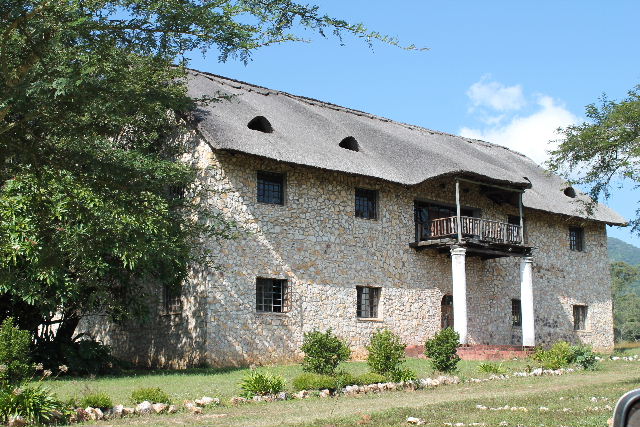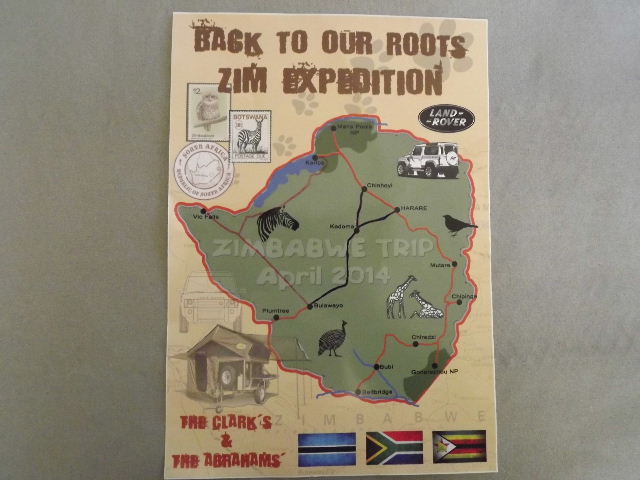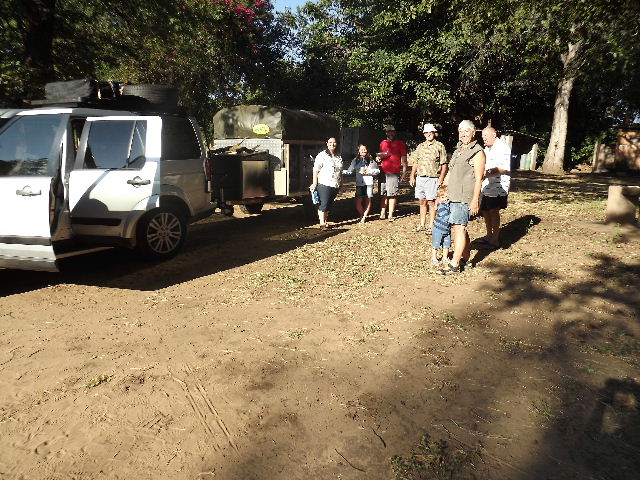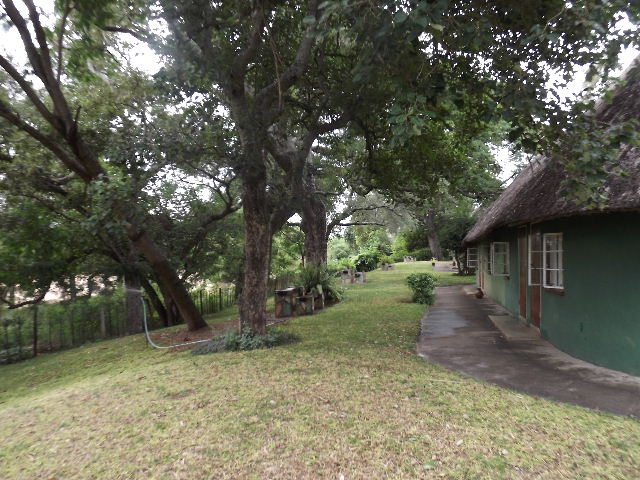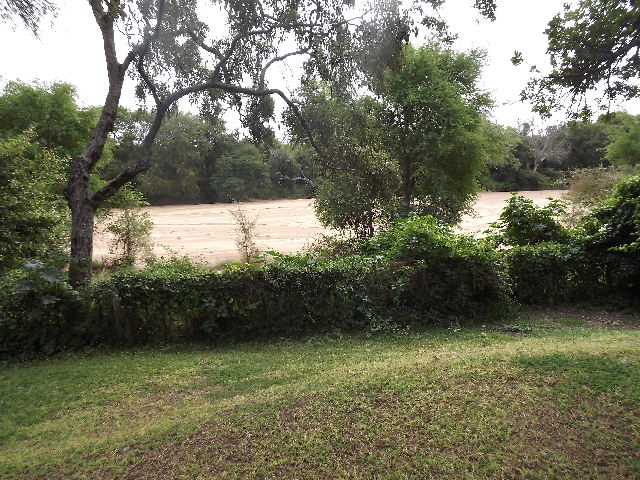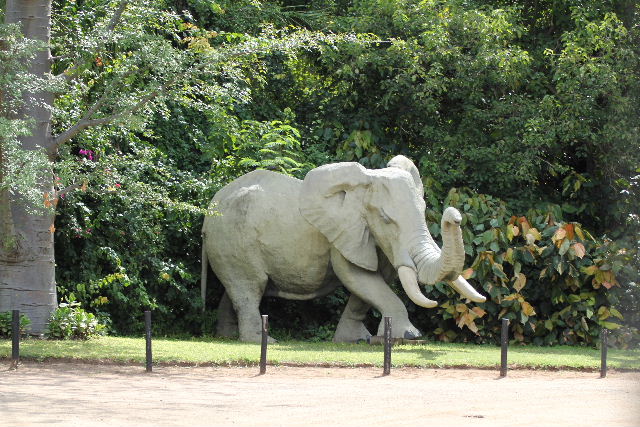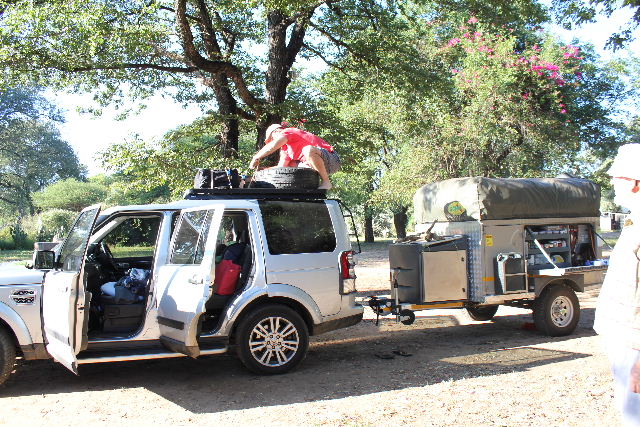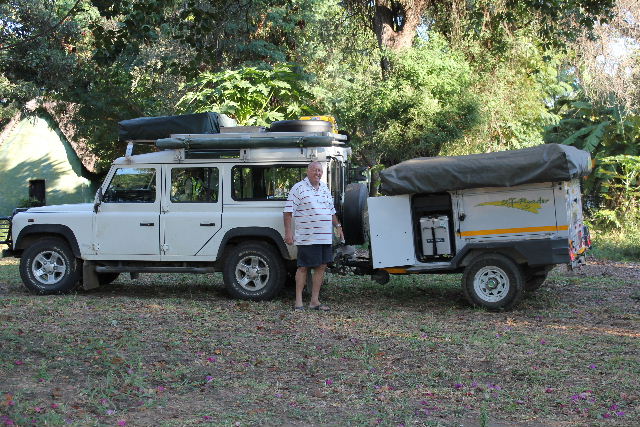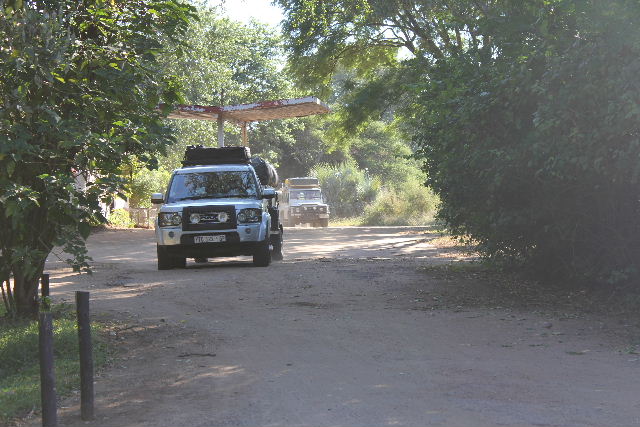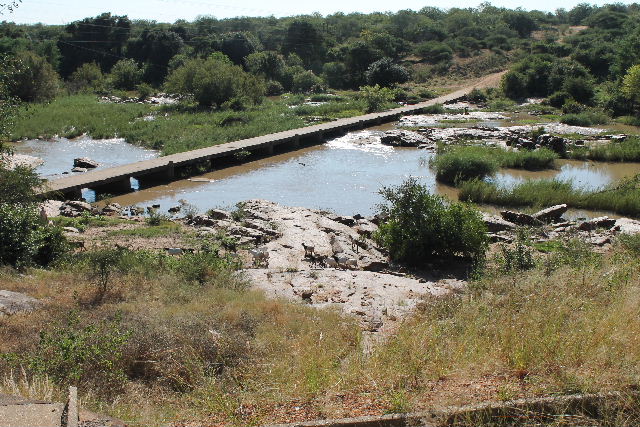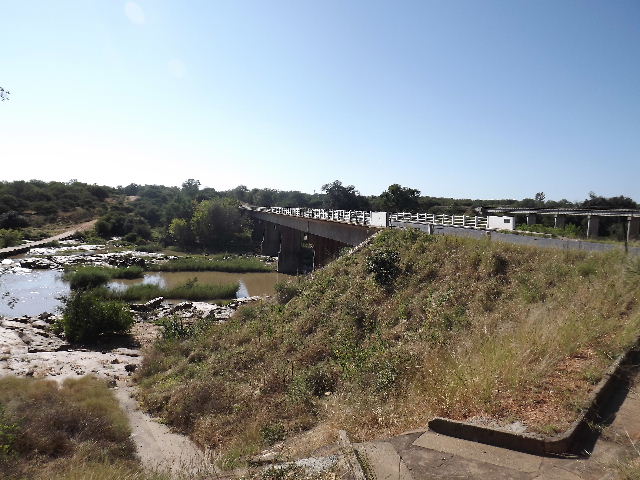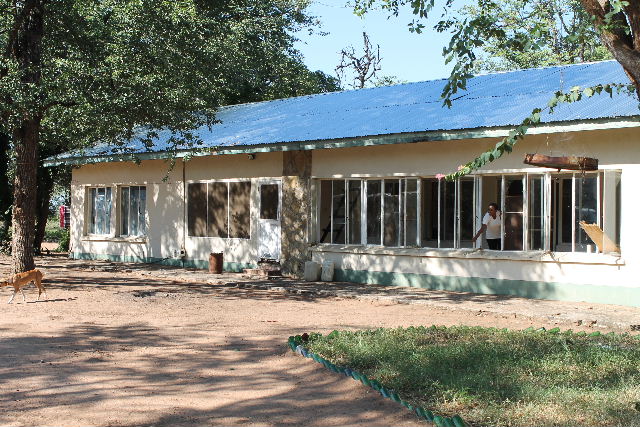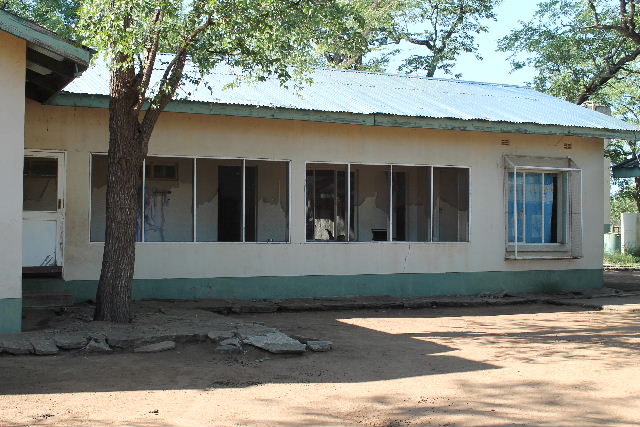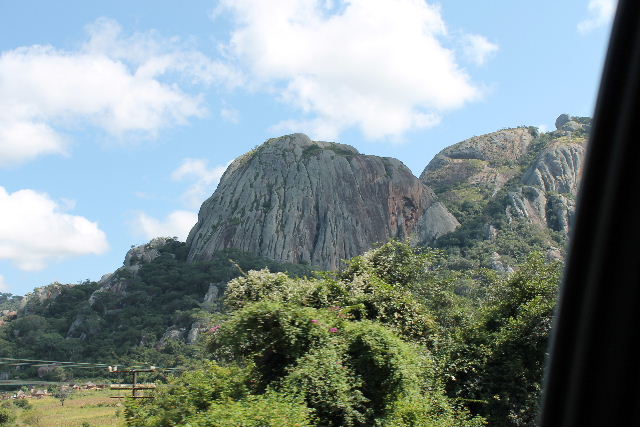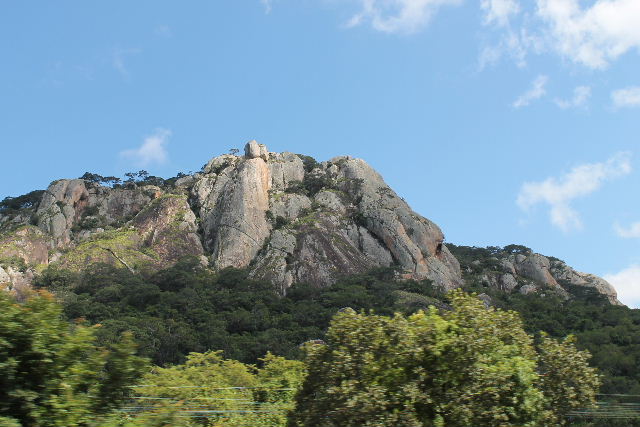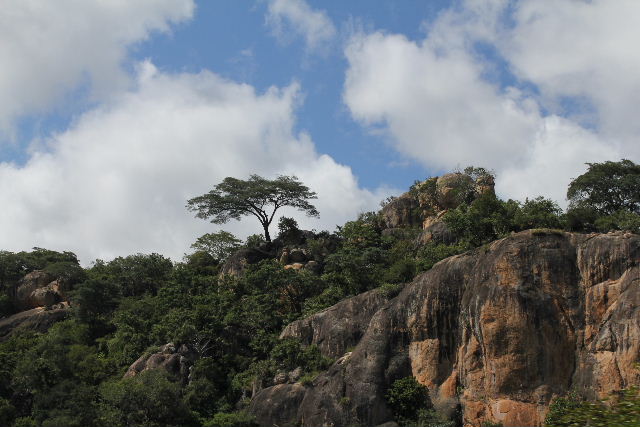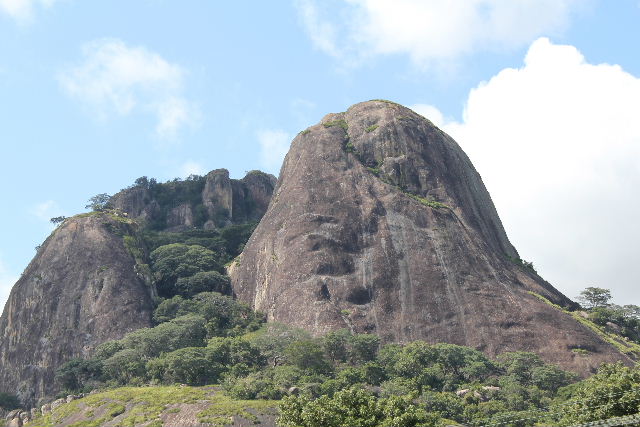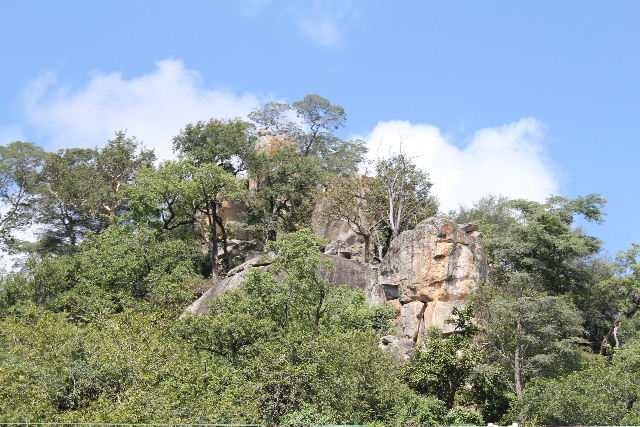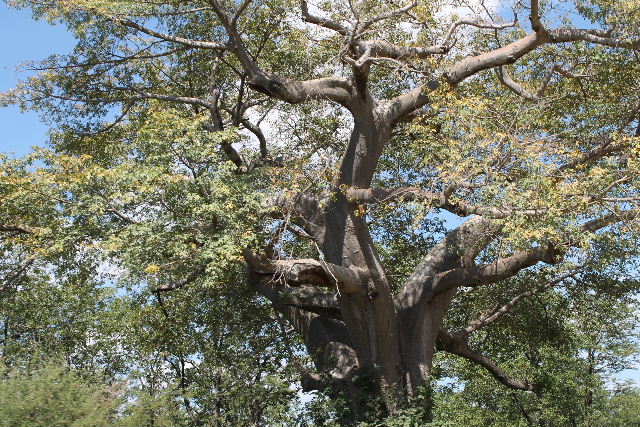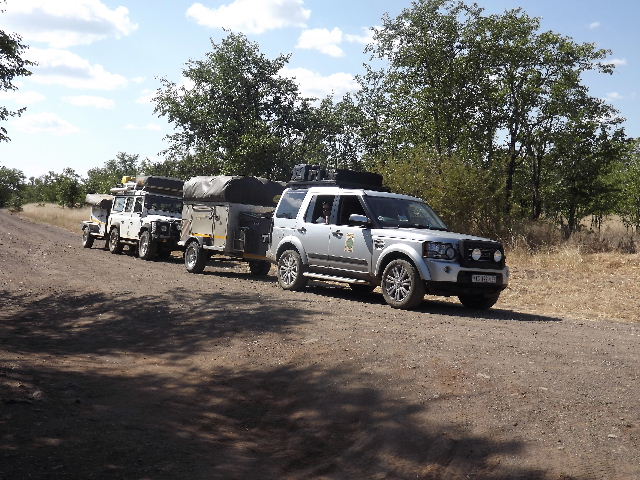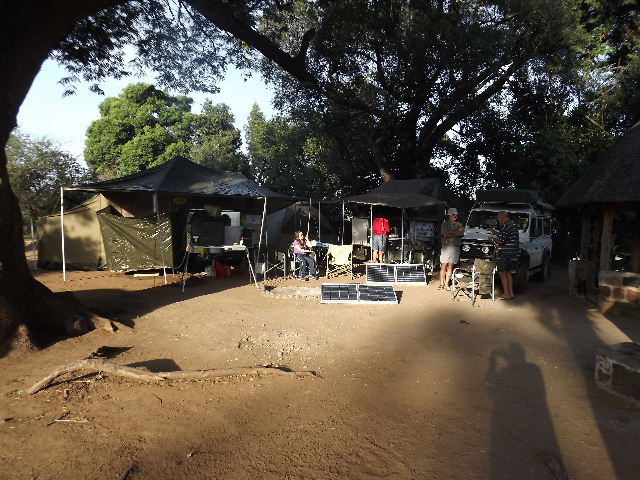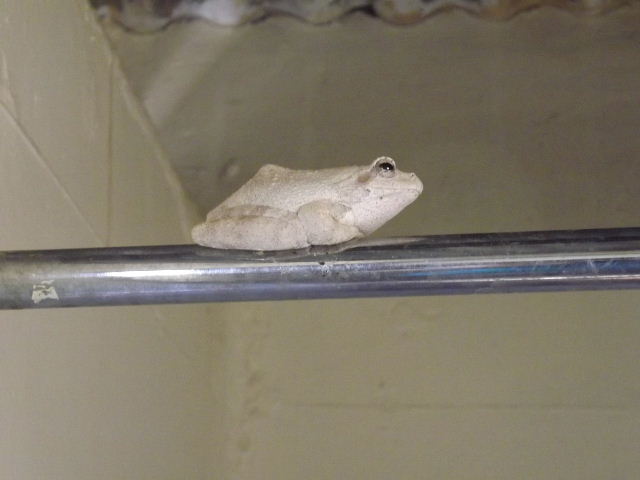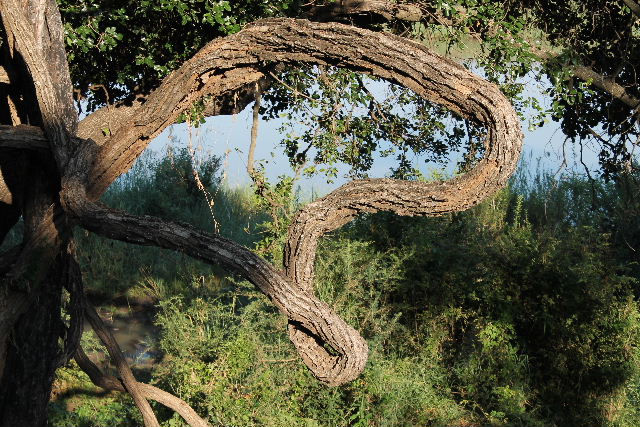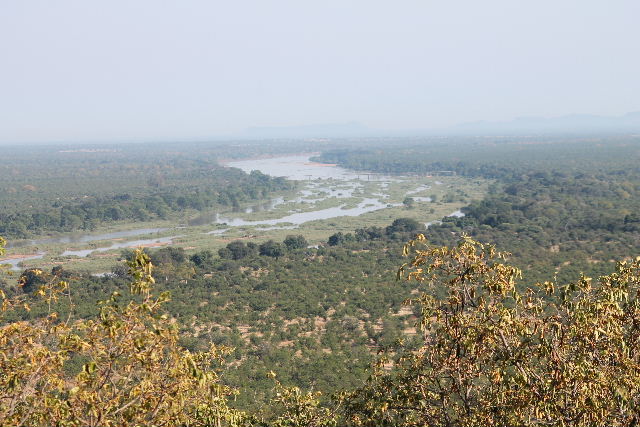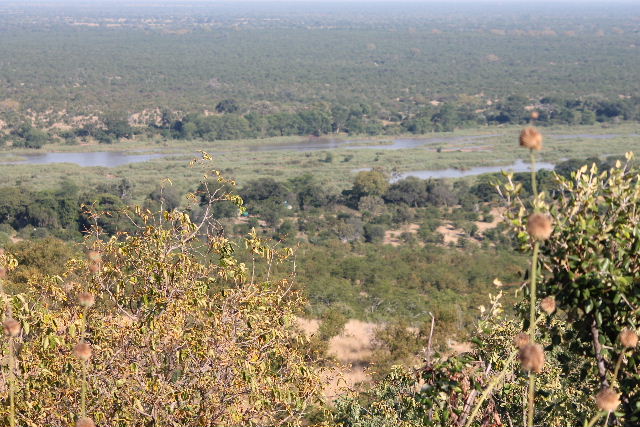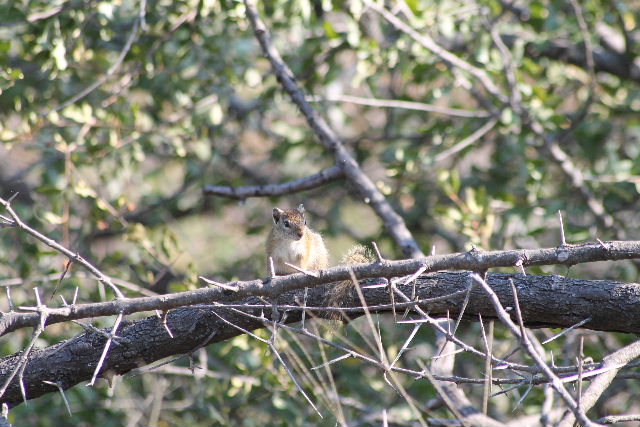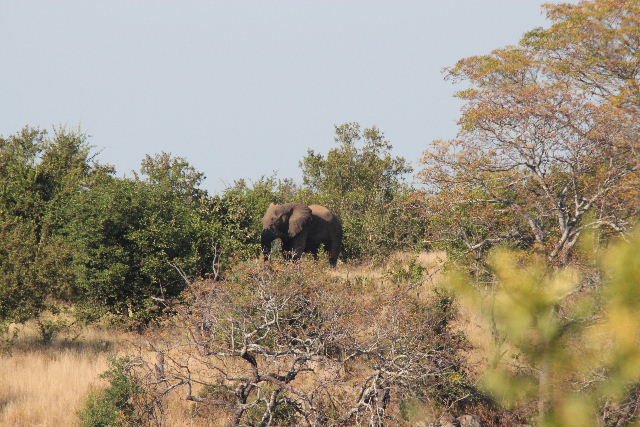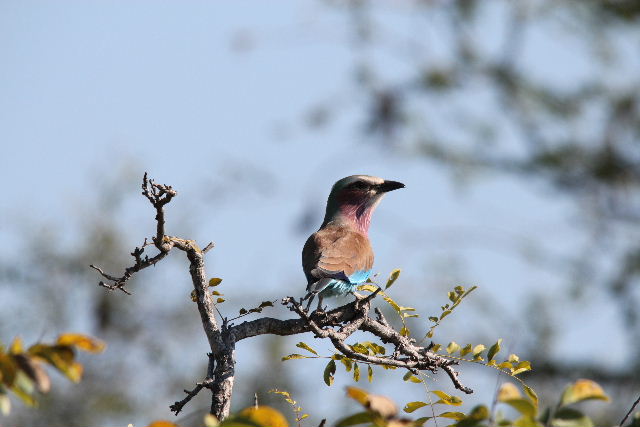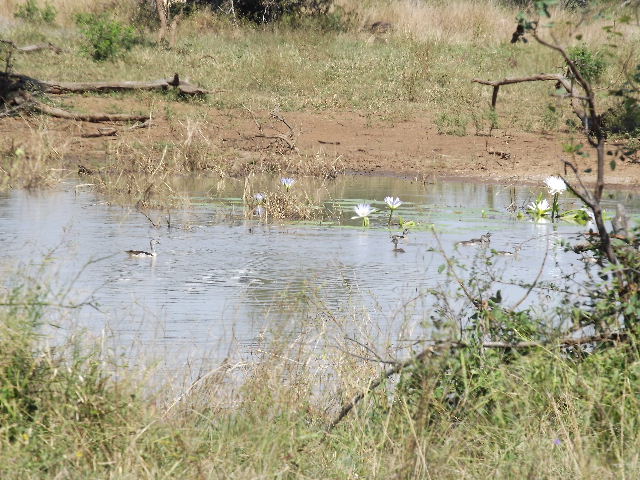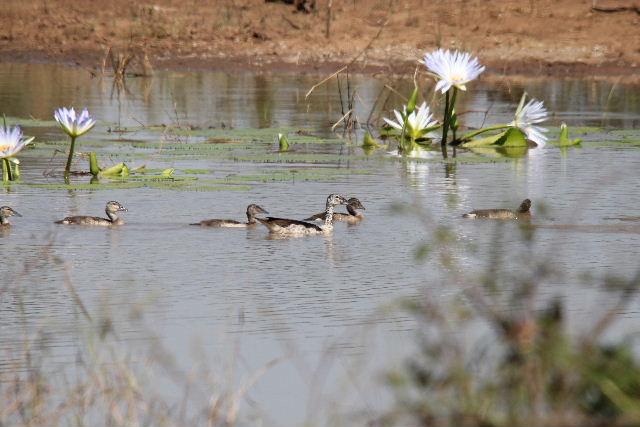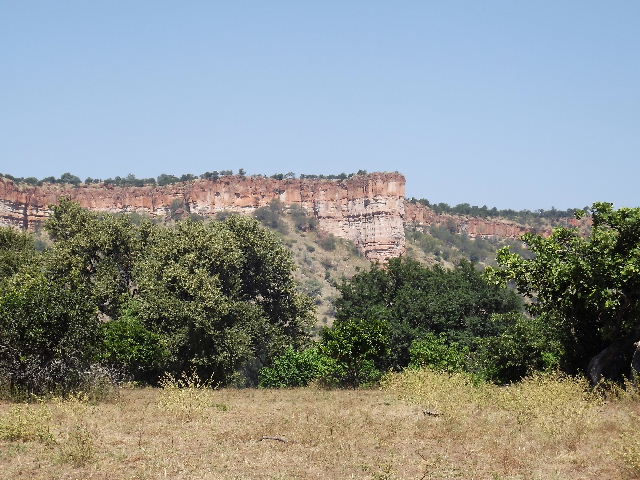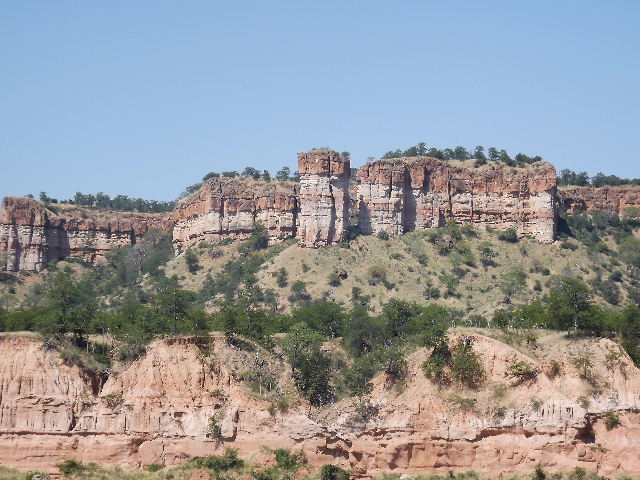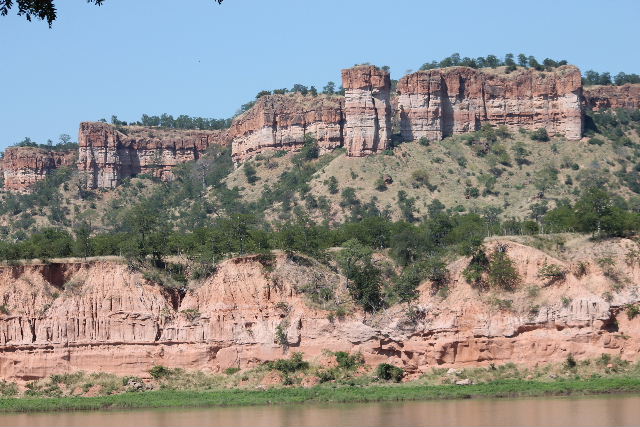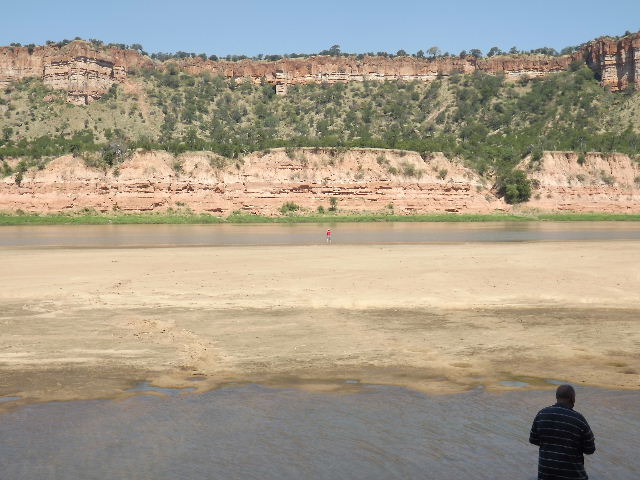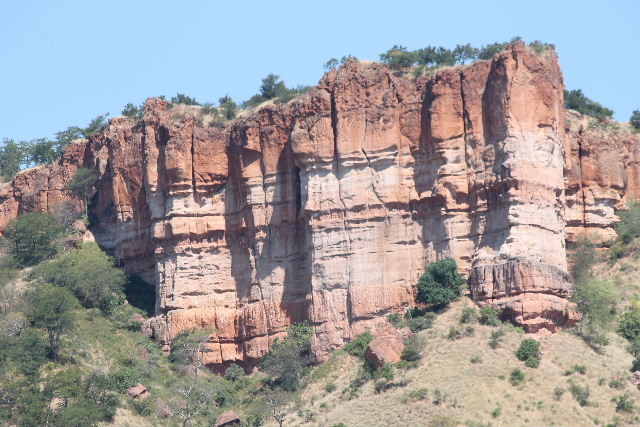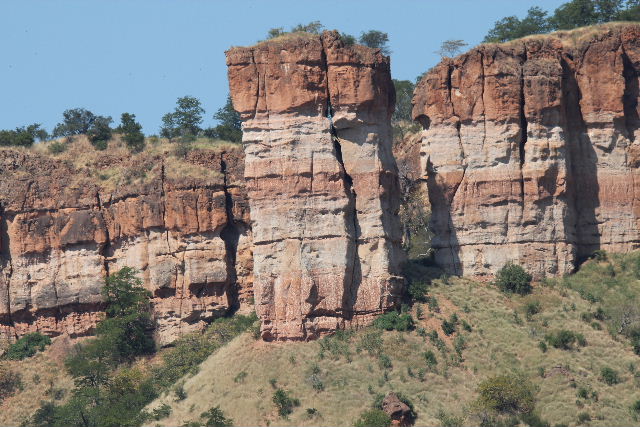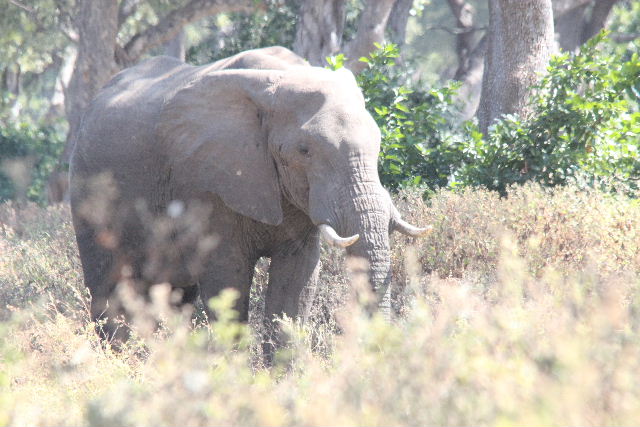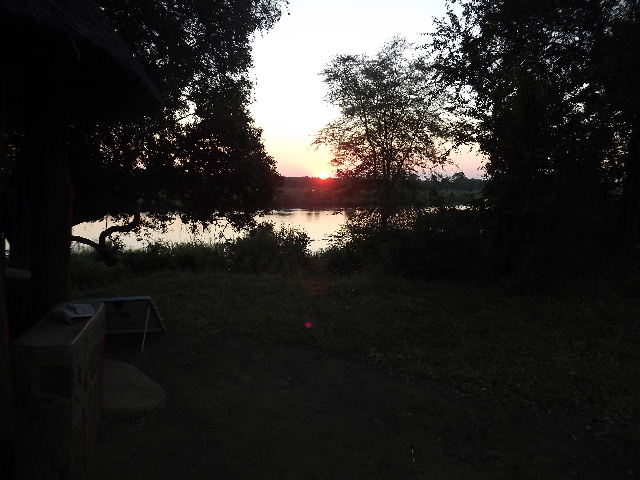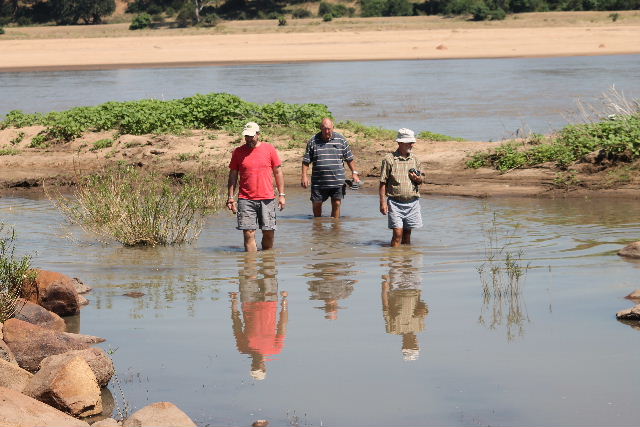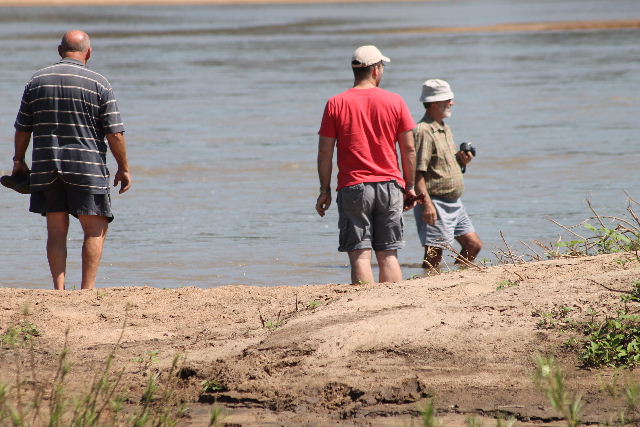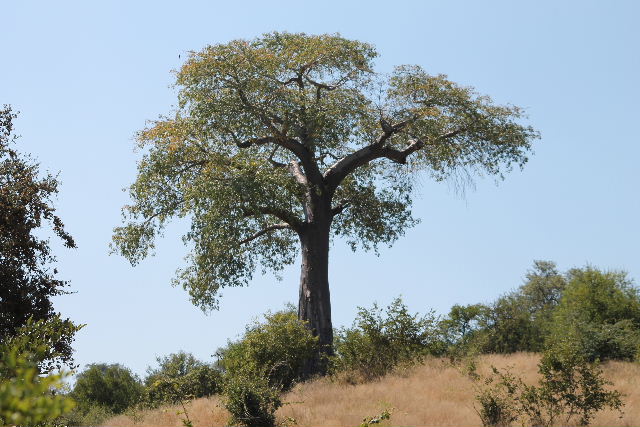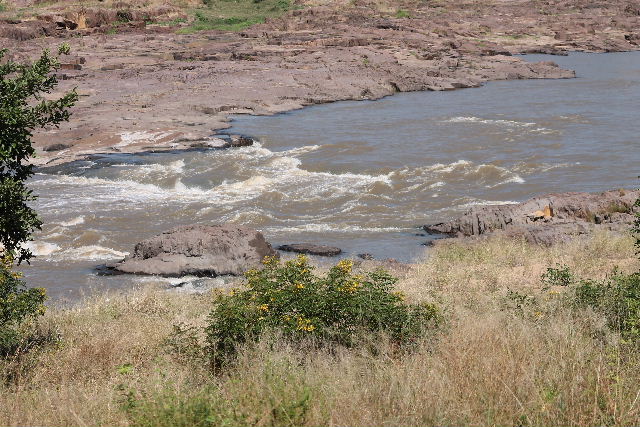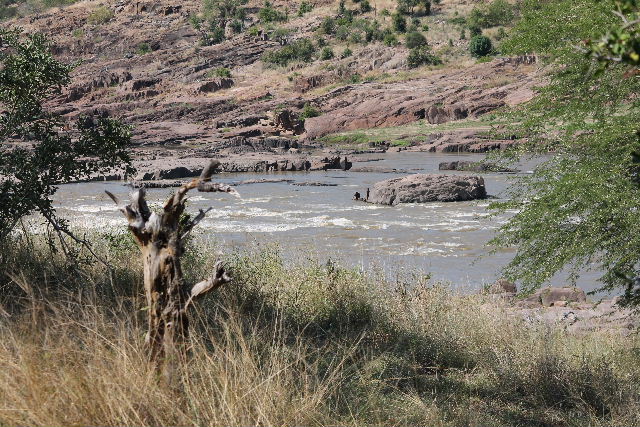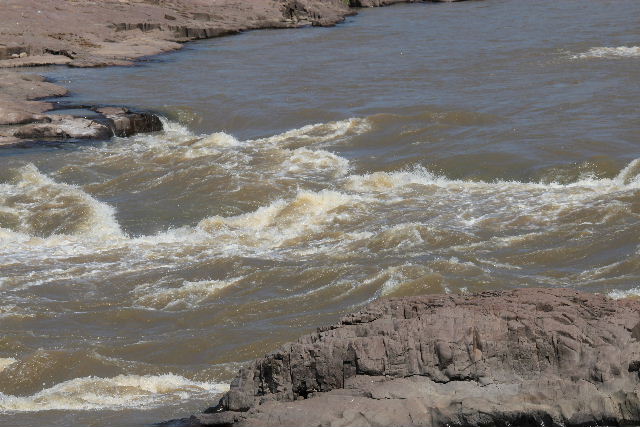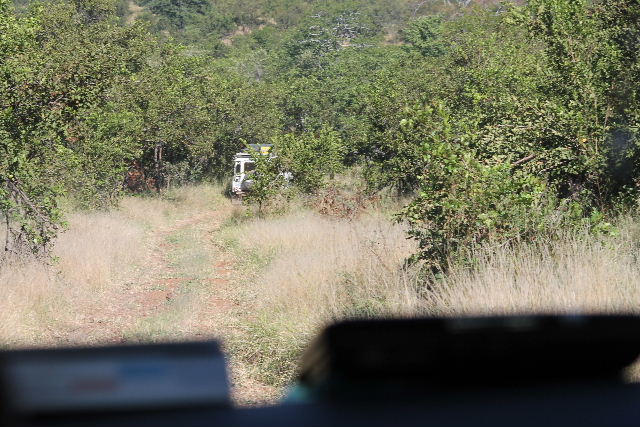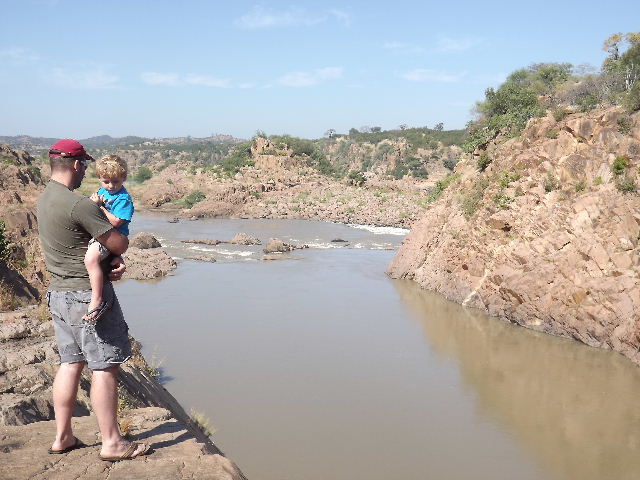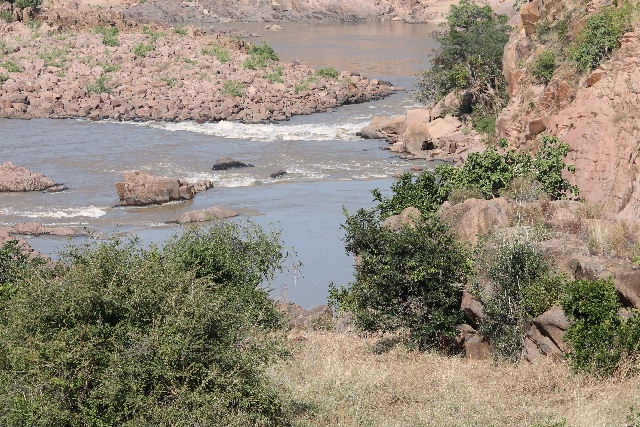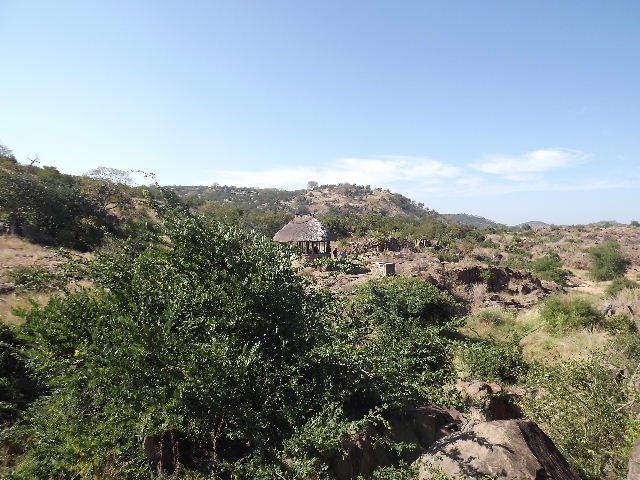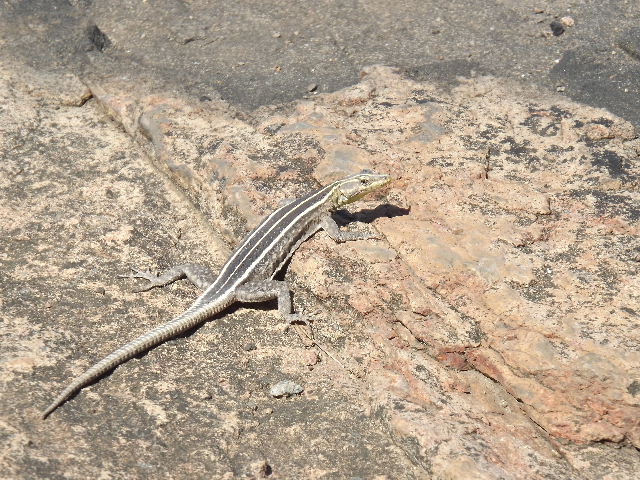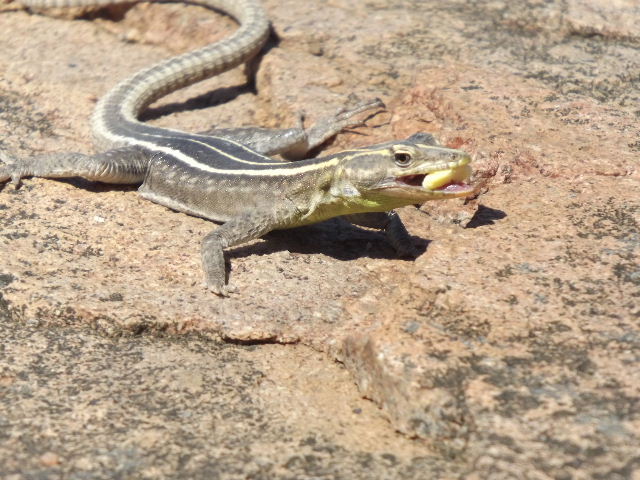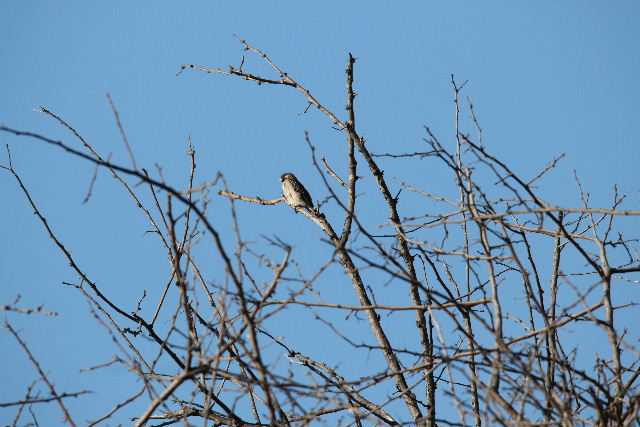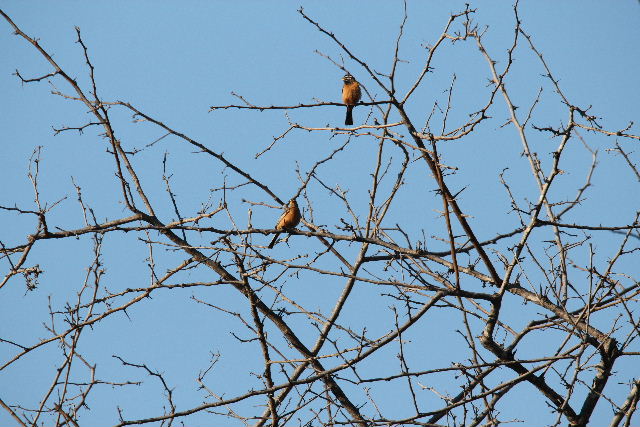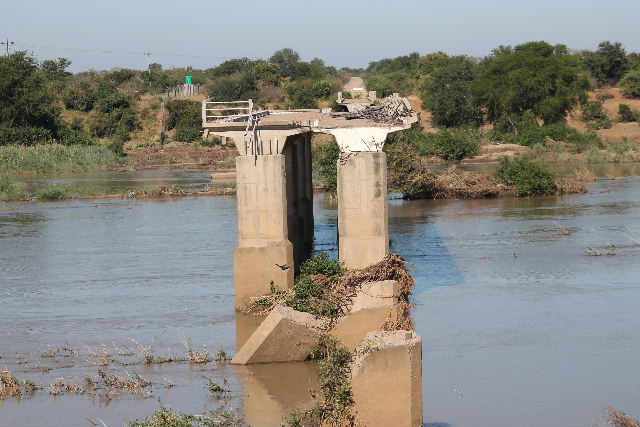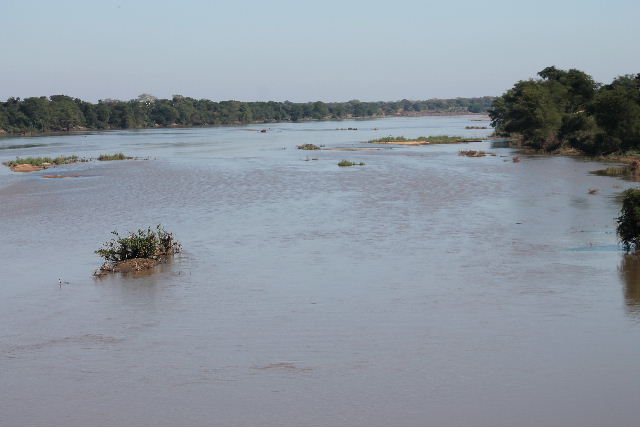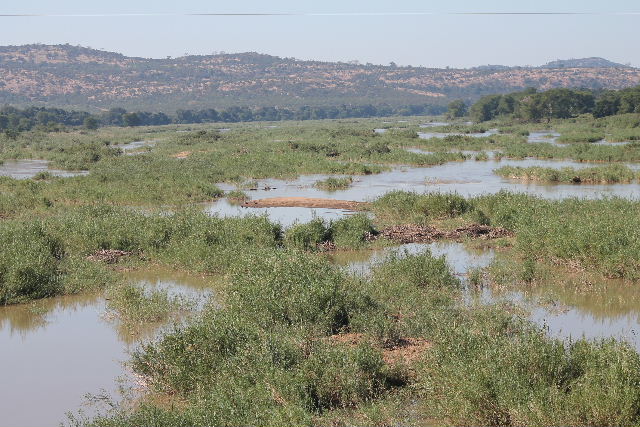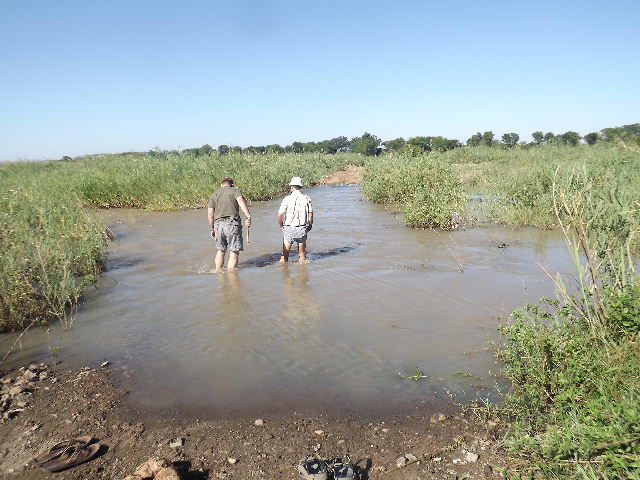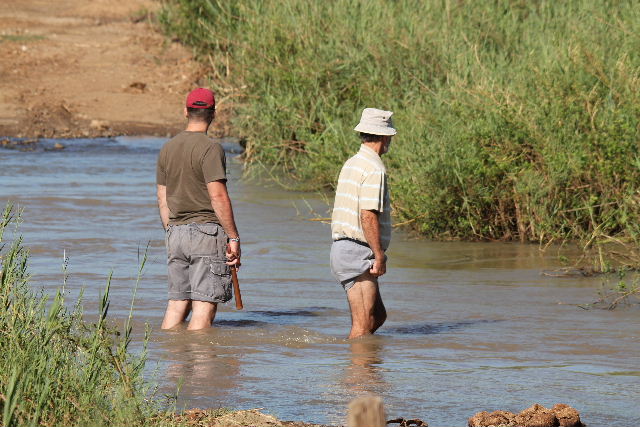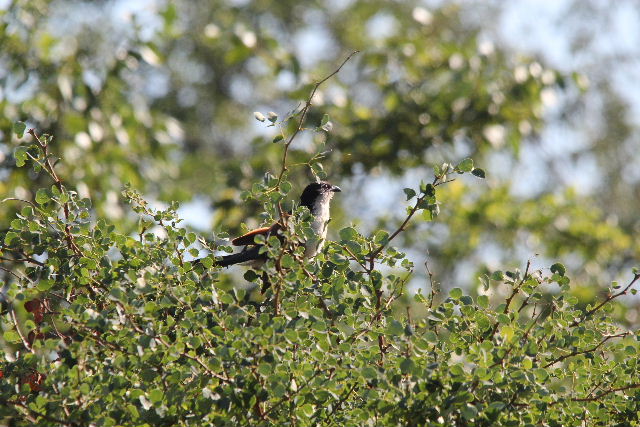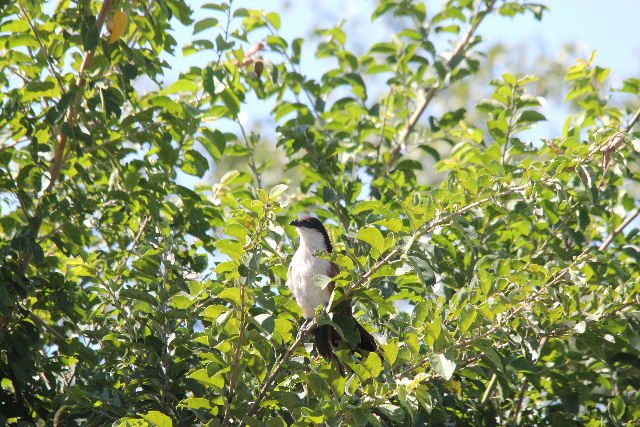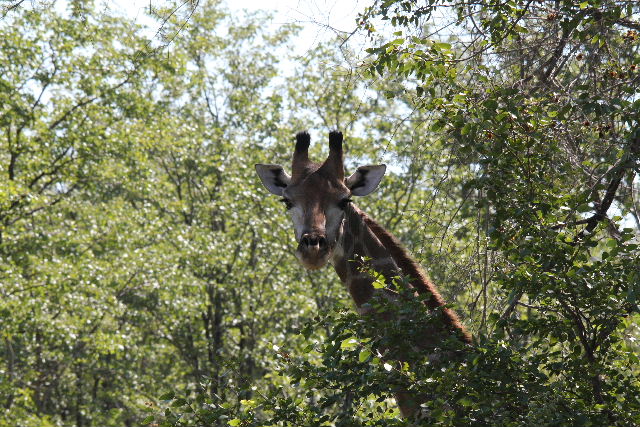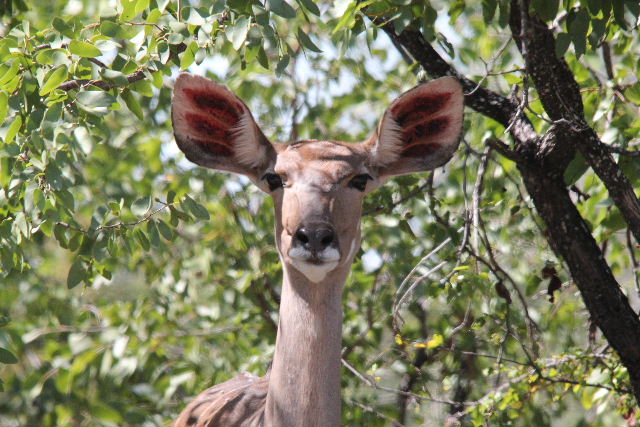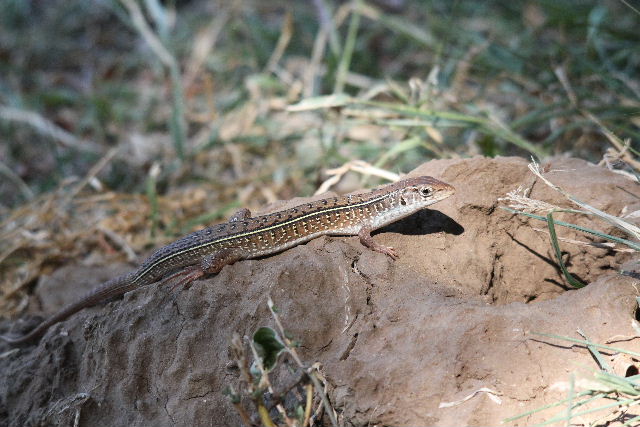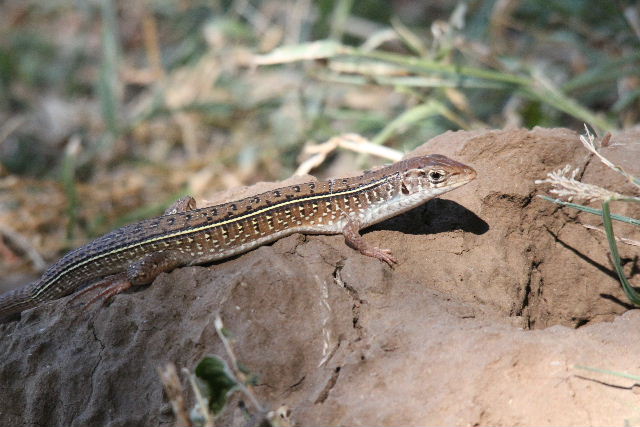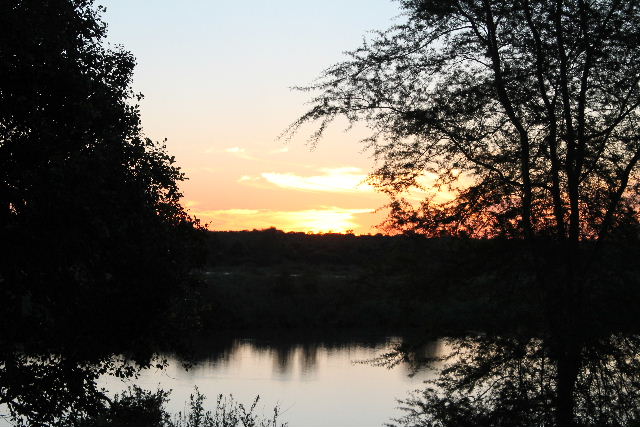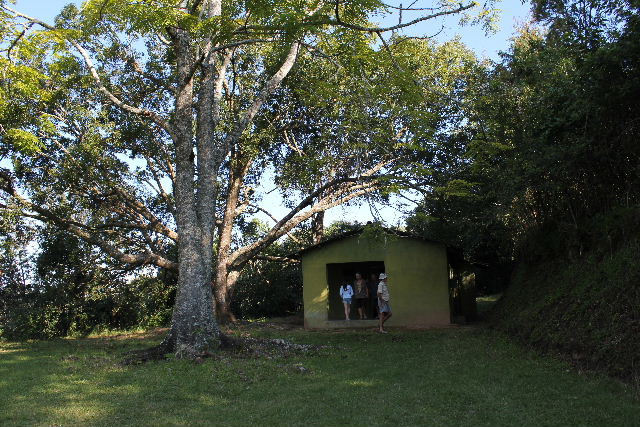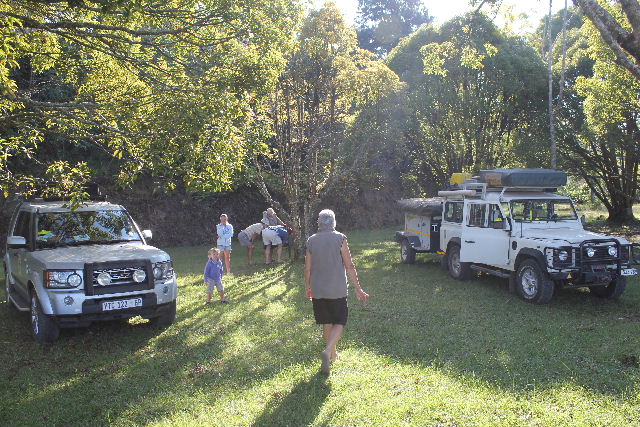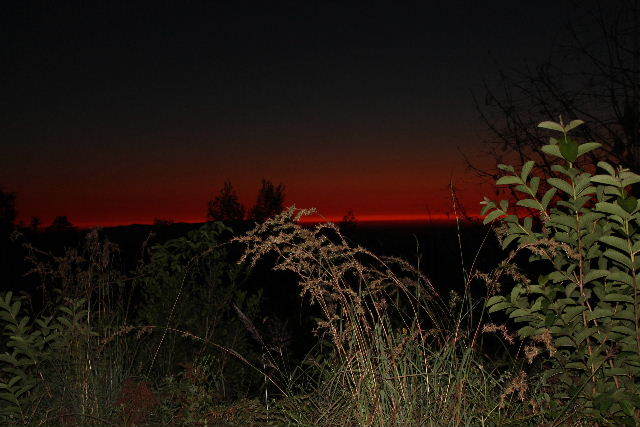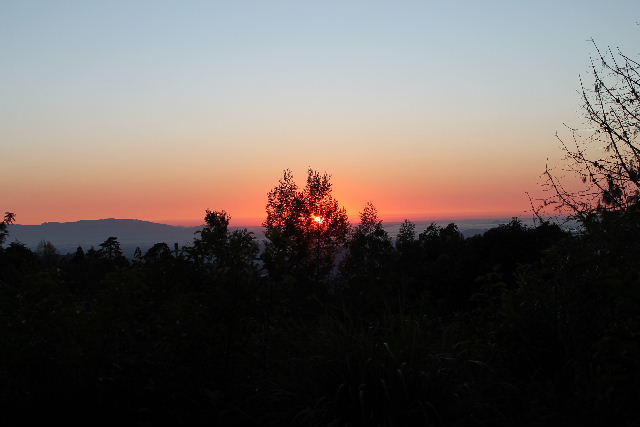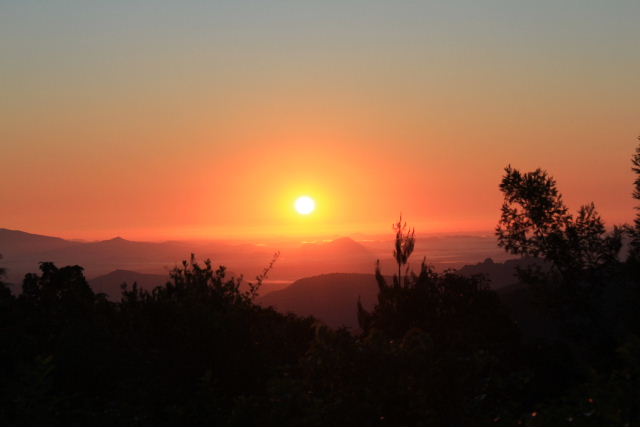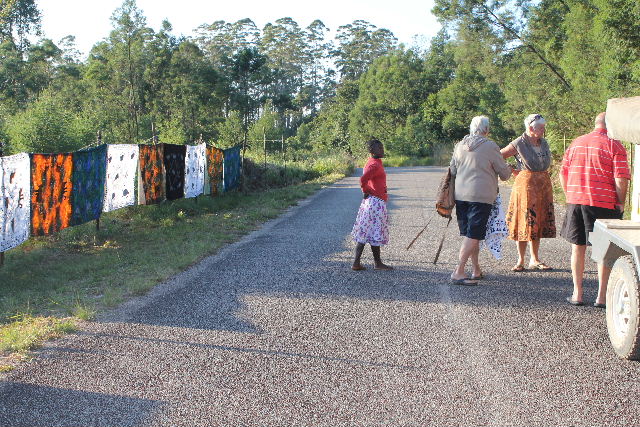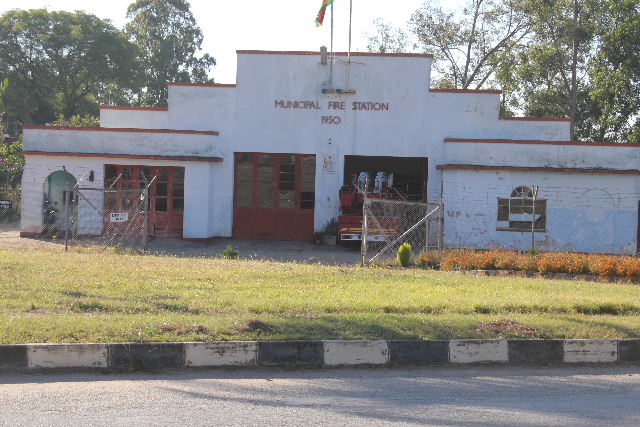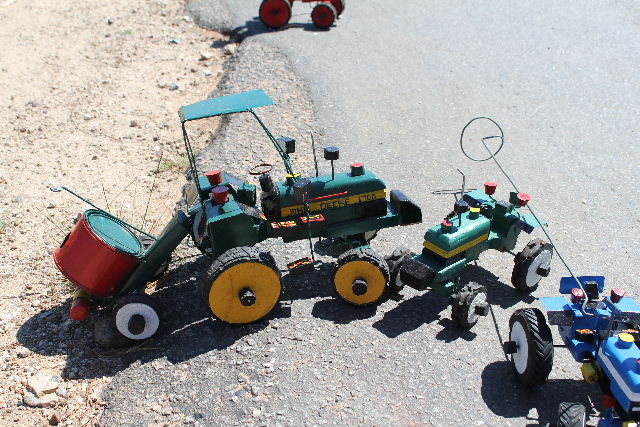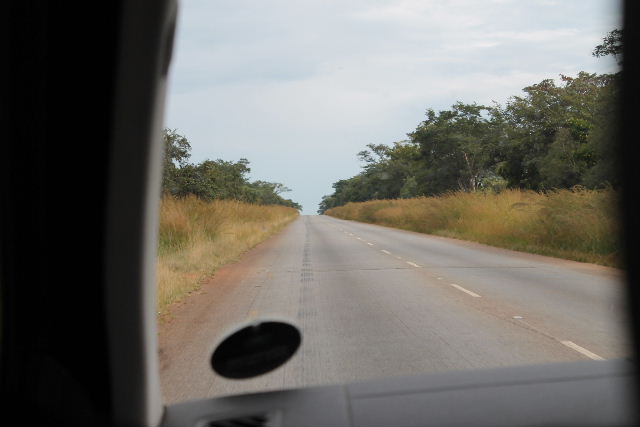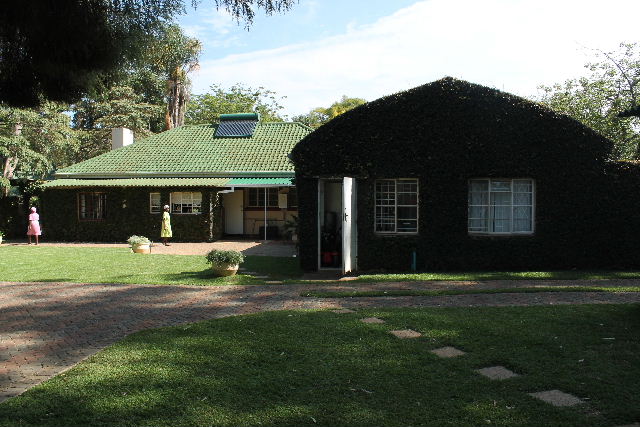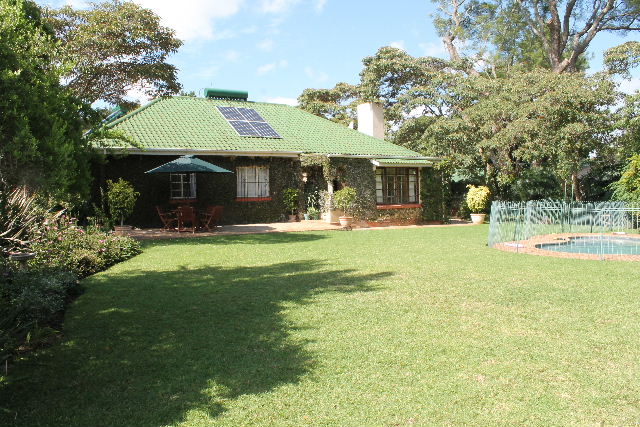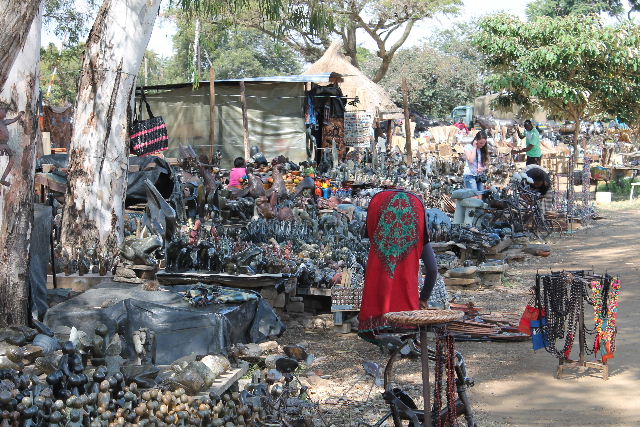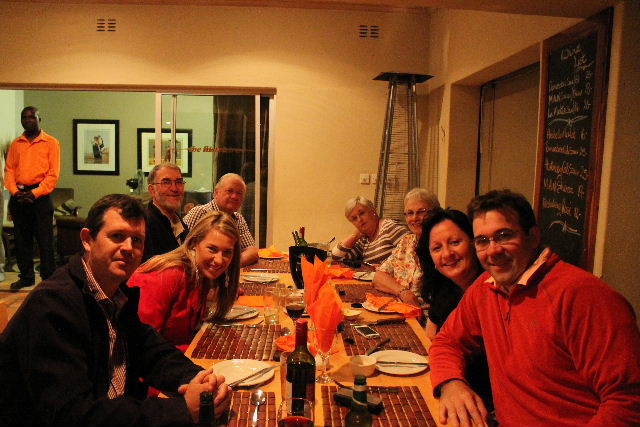Day 6 22nd April 2014
We packed up and reluctantly left Gonarezhou, promising ourselves that we would be back in the drier months
so that we can cross the rivers and see more of the Park.
A martial watched us leave.
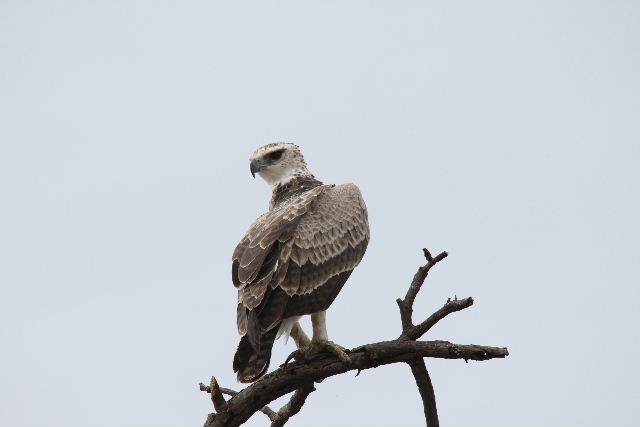
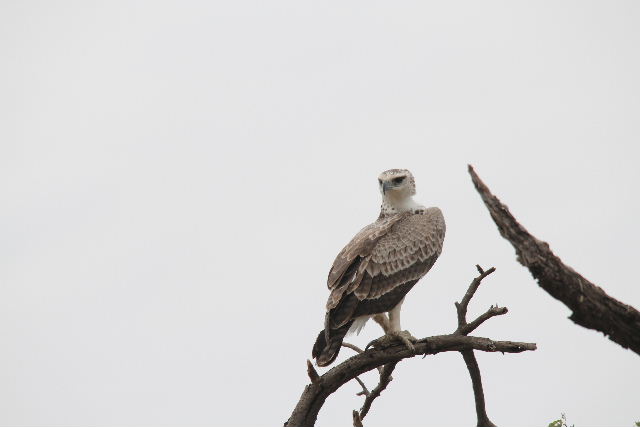
and this fellow right next to the road in Malilangwe.
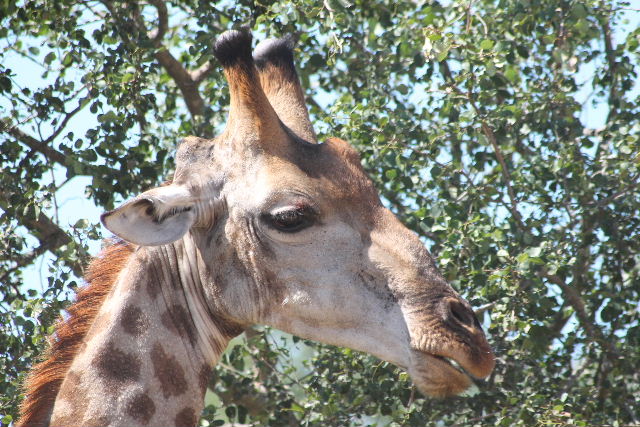
On the way we crossed the Save river (used to be called Sabi). The old low level bridge can be seen with water flowing
over it. A good thing this high level bridge has held

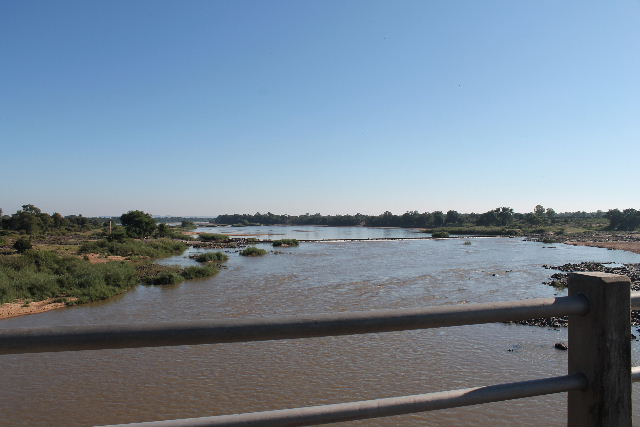
In Chipinge this was the Govt. house that we lived in for 4 years before coming to S.A. A bit over grown and
dilapidated looking, but a home for someone

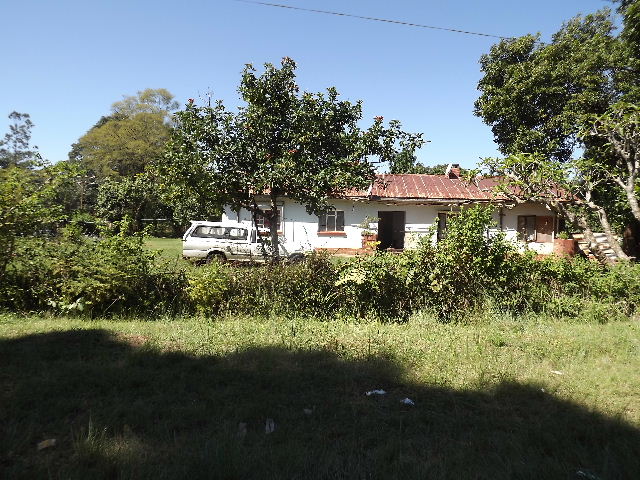
Across the road from the house is where we played tennis. Just the net poles can still be seen


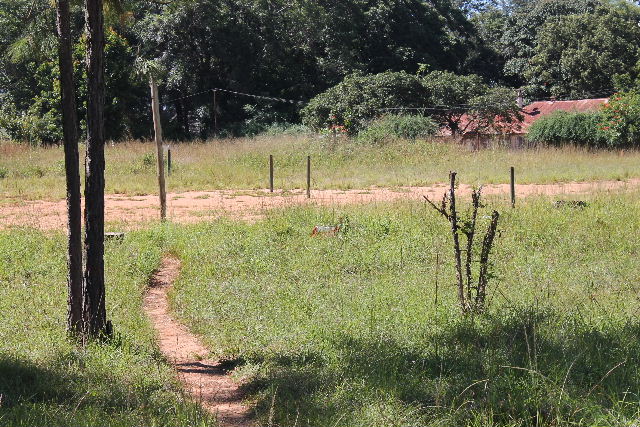
Mike standing in front of the Veterinary offices where he used to work. He went inside and in his old office
there were still memos and notices up on the wall which he had put there.

They were a bit faded


In the yard the little dogs dip that he had built was still there. The roof was gone and the dip was half full of
soil and rubbish.
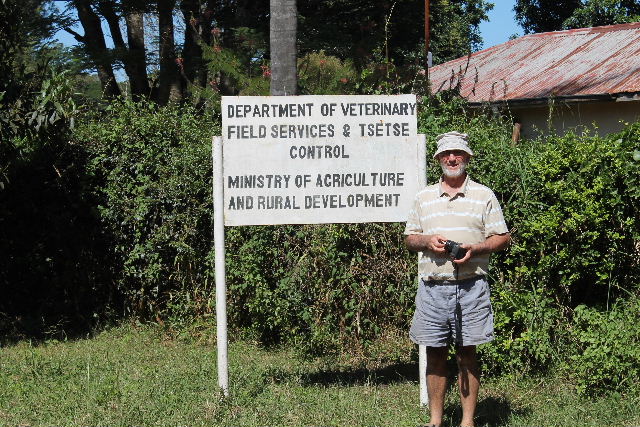
The primary school was a shining light in the village. It had just been newly painted and was in great condition.
My children started their schooling here.
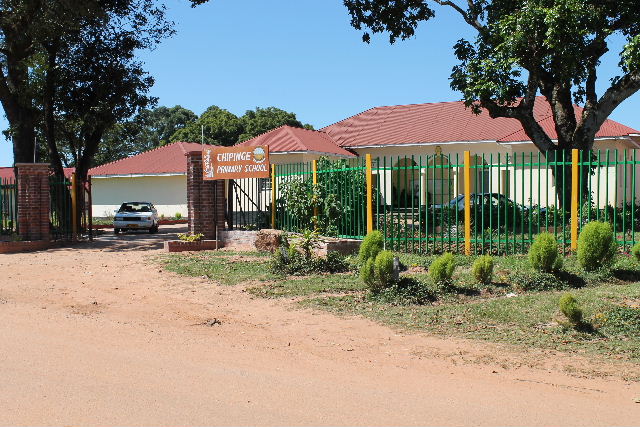
The upstairs windows were the offices where I worked.
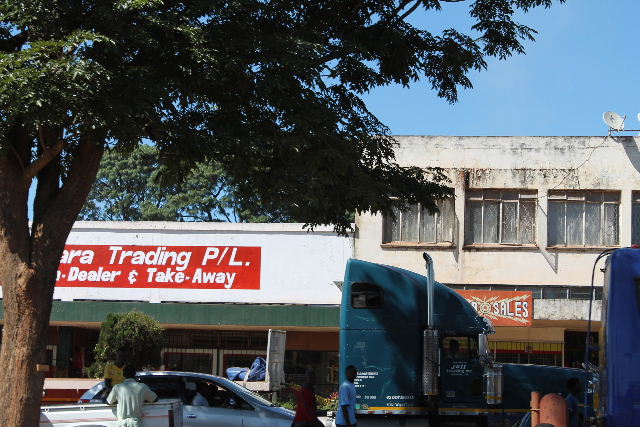
Looking up the main street with the red roof of the school in the far distance between the trees.
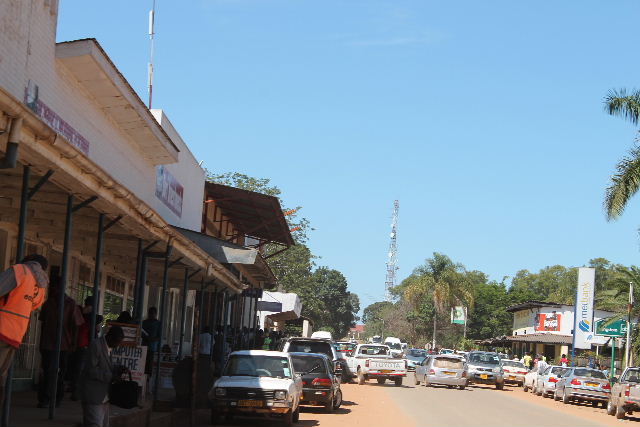
We left Chipinge - been there, done that

on our way to Mutare. On the way we did a 5k detour to see
Birchenough bridge over the Save river. This bridge was built by the Beit Railway Trust with funds bequeathed
by Sir Alfred Beit (of Beit Bridge fame). It was modelled on the Sydney harbour bridge but on a much smaller scale.
The people of the then Rhodesia requested that the bridge be named after Sir Henry Birchenough in recognition of
services renedered to the country.
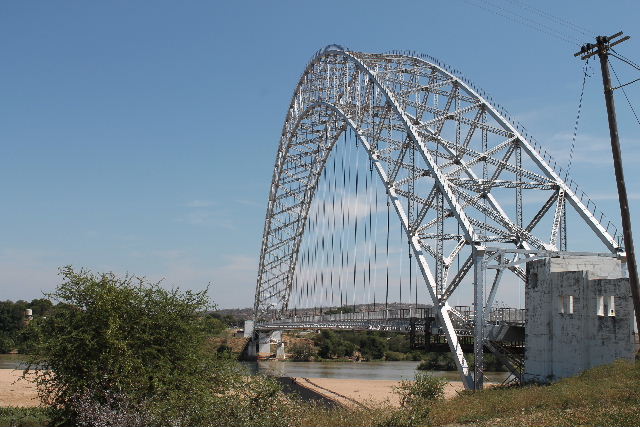
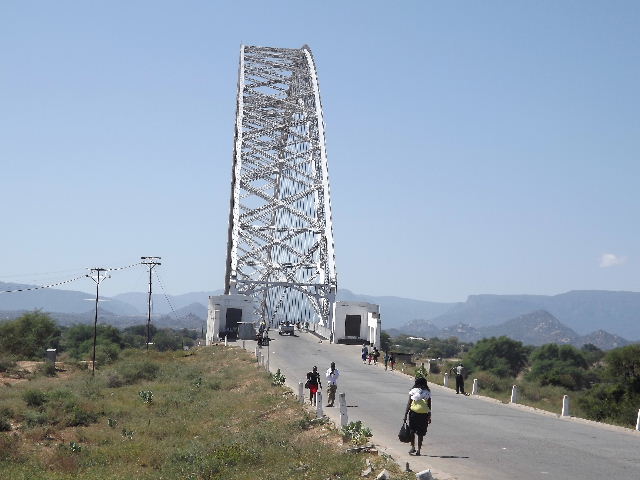
Rene shopping for mats made from baobab bark. The locals don't destroy the tree, they take sections of bark
about half a meter sq. They then allow the tree to recover before taking more bark. Fortunately there are hundreds
of baobabs in this area.
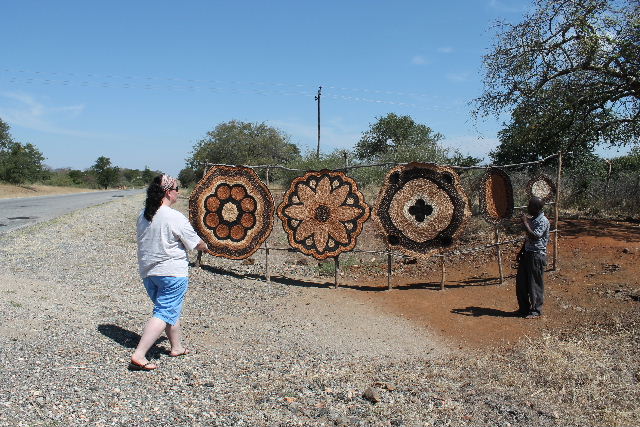
We made our way to Vumba Botanical gardens just outside of Mutare. This area is in the mountains and as the
day progressed so the air got cooler and cooler with quite a cold night. The campsite itself is in a beautiful area
overlooking Chikumba dam in the distance which is in Mozambique. The ablutions were disgusting to put
it politely. They hadn't seen paint in 30 or more years but worse still they hadn't been cleaned in who knows how
long. There was water everywhere with taps and pipes leaking.


There were 2 electric boxes in the campsite, neither of which worked.


Fortunately there was plenty of wood for the donkey boiler so at least we had piping hot water in a short time. I had battled to find somewhere to stay in the first place so we couldn't leave to find somewhere else and it was late in the day. Never there again

This grand old lady had just been left. It looked as if it could have been a guest house or small hotel. But there was
no sign of life now.


